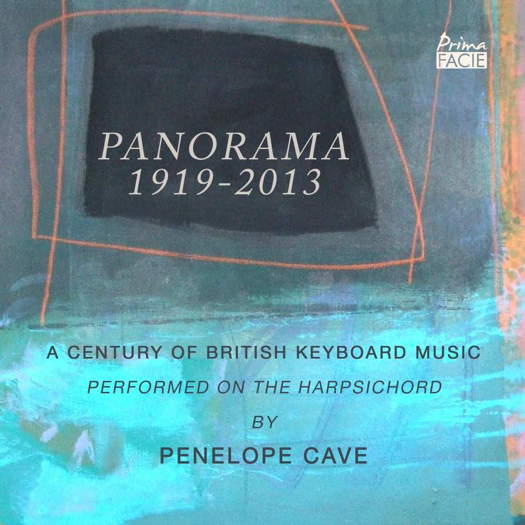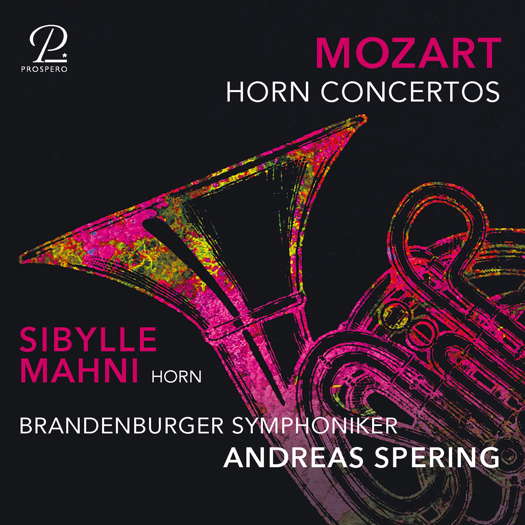- Colombia
- Gesualdo da Venosa
- James Last
- Domenico Carlo Maria Dragonnetti
- Bruno Maderna
- Langgaard: Flammekamrene
- Pietro Reggio
- Pamela Martin
 SPONSORED: CD Spotlight. A Fantastic Collection. Penelope Cave Panorama CD. Little-known harpsichord gems, strongly recommended by Alice McVeigh.
SPONSORED: CD Spotlight. A Fantastic Collection. Penelope Cave Panorama CD. Little-known harpsichord gems, strongly recommended by Alice McVeigh.
All sponsored features >>
 DISCUSSION: What is a work? John Dante Prevedini leads a discussion about The performing artist as co-creator, including contributions from Halida Dinova, Yekaterina Lebedeva, Béla Hartmann, David Arditti and Stephen Francis Vasta.
DISCUSSION: What is a work? John Dante Prevedini leads a discussion about The performing artist as co-creator, including contributions from Halida Dinova, Yekaterina Lebedeva, Béla Hartmann, David Arditti and Stephen Francis Vasta.

Joyously Sparkling
GERALD FENECH listens to Sibylle Mahni play Mozart's horn concertos
'There are recorded versions of these works aplenty, but this Prospero issue can certainly hold its ground with some of the best available at the moment.'
Mozart's Horn Concertos belong to the final period of his life and were written for the Salzburg horn-player Ignaz Leutgeb, a musician who had doubled as a violinist in the Salzburg orchestra, but had appeared in Paris as a horn soloist in concertos of his own composition, when he demonstrated the new technique of hand-stopped notes, the changing of pitch by the insertion of the right hand into the bell of the instrument.
Leutgeb had moved to Vienna in 1777 when he had acquired a cheese shop in the suburbs, according to Leopold Mozart, who had lent him money for the purpose, the size of a snail's shell. Four years later, he had still not repaid the loan, as we learn from one of Mozart's letters to his father.
Mozart remained on the friendliest terms with him, in his own wife's absence relying on Frau Leutgeb to launder his cravat for him, and playing various jokes on his friend. Something of their relationship can be gathered from the remarks that Mozart included in the autograph of the unfinished D major 'Rondo and Allegro' in which the horn part is marked 'Adagio' and which continues with abusive remarks directed at the performer.
Examination of the paper used by Mozart for the unfinished 'Rondo' in D, K 412 (1791), makes it clear that the movement was written during the last summer of Mozart's life. It was completed by Sussmayr in 1792, with a revision of the first movement, also written in 1792, of what would presumably have been a three-movement concerto that now lacks a slow movement.
Listen — Mozart: Rondò (Horn Concerto in D, K 412)
(PROSP 0083 track 11, 0:13-1:07) ℗ 2024 Martin Korn Music Production :
The first of the three completed horn concertos, the one in E Flat, K 417, bears the date 27 May 1783 and is dedicated to Leutgeb. It is scored for an orchestra of two oboes, two horns and strings. The first movement opens with the usual orchestral exposition, its two themes followed by the entry of the soloist, with material of his own.
Listen — Mozart: Allegro (Horn Concerto in E flat, K 417)
(PROSP 0083 track 1, 0:46-1:42) ℗ 2024 Martin Korn Music Production :
The short development adds a feeling of greater intensity, before the return of the earlier material. The slow movement, of which the original autograph has been lost, makes very little use of the other wind instruments, which appear only at the beginning and end of the movement, and to mark the conclusion of the first section. They return in the final hunting 'rondo', with its characteristically ebullient principal theme.
The second complete concerto, No 3 in E Flat, K 447, has been convincingly dated to 1787, although some prefer an earlier date.
Listen — Mozart: Romance. Larghetto (Horn Concerto in E flat, K 447)
(PROSP 0083 track 8, 2:08-2:57) ℗ 2024 Martin Korn Music Production :
It is scored for an orchestra of pairs of clarinets, bassoons and horns, with strings, and follows the now customary form, making even greater demands on the virtuosity of the soloist and ending in characteristic style in the final 'rondo'.
In the index of his compositions Mozart had begun to compile in Vienna, the third completed concerto, No 4 in E Flat, K 495, is dated 26 June 1786. The surviving pages of the autograph are written in different coloured inks: red, green, blue and black – a fact that some have chosen to see as a joke and others, rightly so, as a code giving the indications of the dynamics. The final 'Rondo' is written only in red and black, but the slow movement makes use of all four colours. The work is scored for pairs of oboes and horns with strings.
The music is buoyant, light-hearted and generally virtuosic, and Sibylle Mahni, Professor of Horn at the Hanns Eisler School of Music, Berlin, rises to the occasion with performances that are not only historically informed but also joyously sparkling with a joie de vivre that is enriching from start to finish.
Listen — Mozart: Rondo. Allegro vivace (Horn Concerto in E flat, K 495)
(PROSP 0083 track 6, 2:46-3:42) ℗ 2024 Martin Korn Music Production :
The Brandenburger Symphoniker conducted by Andreas Spering lends incisive support throughout. There are recorded versions of these works aplenty, but this Prospero issue can certainly hold its ground with some of the best available at the moment. Sound and presentation are first-rate. A near hour of fun which is well worth investing in.
Copyright © 20 April 2024
Gerald Fenech,
Gzira, Malta



